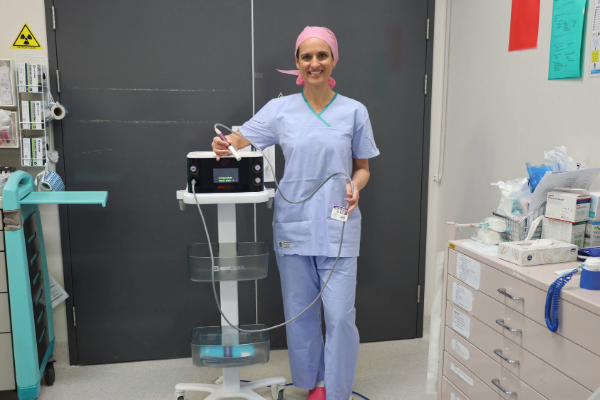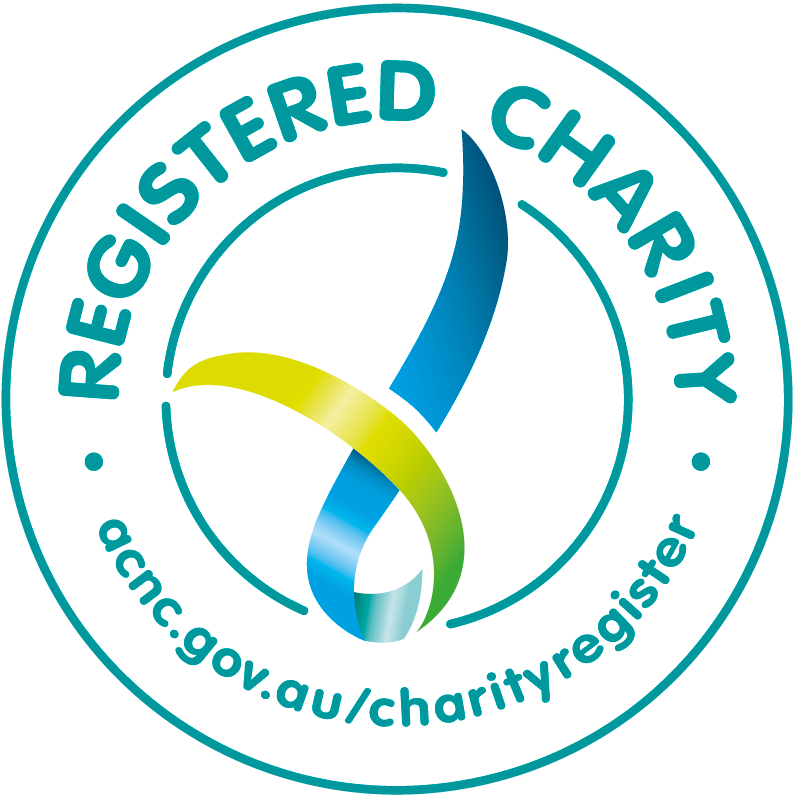Springfield grandmother Carolyn McMillan couldn’t feel her tumour, and neither could her surgeon. Now, thanks to a routine mammogram check-up and a device smaller than a grain of rice, she’s on her way to being cancer-free.
Ipswich Hospital was the first public hospital in Queensland to use SCOUT®, a special tool that helps doctors find hidden lumps in breasts that can’t be felt by hand.
It’s already shaving days off patient wait times, reducing the need for repeat surgeries, and sparing women unnecessary tissue loss and anxiety.
In the 18 months since its donation to the hospital by the West Moreton Health Foundation, about 100 patients have benefited, with an estimated 400 collective days of patient wait time saved.
“Preliminary results indicate that these women are now getting to surgery about four days faster on average,” breast surgeon Dr Susan Bell said.
“When you’re waiting to have cancer removed, you want it to happen as fast as possible. Added together, it’s more than a year of time saved across our patient group.”

Less delay, less stress, less removed
For decades, women needing surgery to remove small impalpable breast tumours have relied on radiologists inserting hookwires to guide surgeons to the right area, but the hookwires are prone to move before surgery.
SCOUT replaces this with a tiny device that can be placed by a radiologist days or weeks in advance, avoiding last-minute scheduling issues. In surgery, the device sends a signal to guide surgeons with greater precision.
“SCOUT is giving us much more accuracy,” Dr Bell said. “We’re hopefully able to remove less healthy tissue, reduce the chance of needing a second surgery, and get patients into surgery faster.”
Patient impact
For patients like retired Springfield nurse Carolyn McMillan, the device is helping at a traumatic time.
Thanks to having regular check-ups at the Springfield mammogram van, the 67-year-old’s cancer was detected early.
“I was very lucky; it was so tiny. It was stage one or two invasive carcinoma, and it was underneath. You couldn’t feel it,” said Mrs McMillan.
“Even the breast surgeon Dr Bell couldn’t feel it or find it by hand.”
In the days before her surgery, she had a SCOUT sensor inserted into her breast.
“You wouldn’t know it was there. I was just walking around with it in for five days,” Mrs McMillan said.
“Years ago, if you had breast cancer, I think it would have been a lot harder, but I just feel that I’ve been very lucky and I was just looked after really well.”
Public patients benefit first
Ipswich Hospital’s SCOUT® technology was funded through the West Moreton Health Foundation, which supports public health innovations across the region.
CEO Scott Young said the technology was a clear example of how the foundation’s support was improving patient care.
“We work closely with our frontline teams to find out what technology or support they most need and then help make it happen,” he said.
A shift across Australia and New Zealand
Dr Bell, who is completing a Master’s research project on SCOUT, recently surveyed 112 breast surgeons across Australia and New Zealand – about a third of the field.
Three-in-four (75 per cent) said they were moving away from hookwires to wire-free alternatives like SCOUT, MagSeed, or Pintuition.
“Since we introduced SCOUT, support has been unanimous among our radiology and surgical teams, and we haven’t performed a single hookwire surgery – though they remain an important option for deeper tumours,” said Dr Bell.
“We’re grateful to the West Moreton Health Foundation for hearing our need and helping us meet it,” she concluded.





